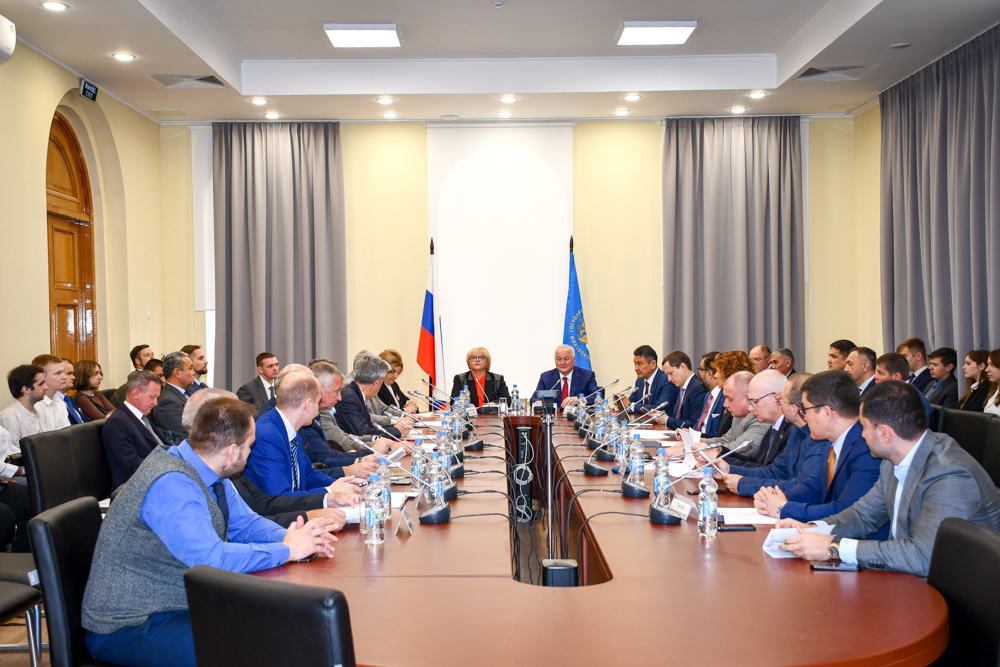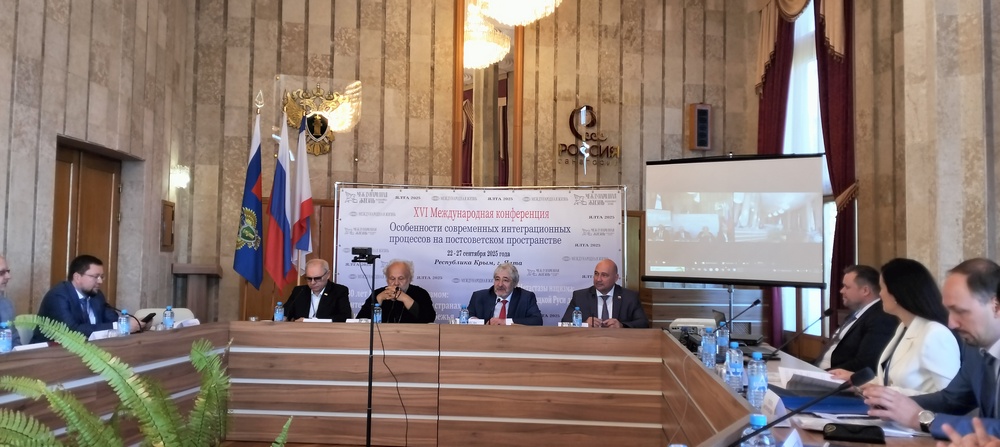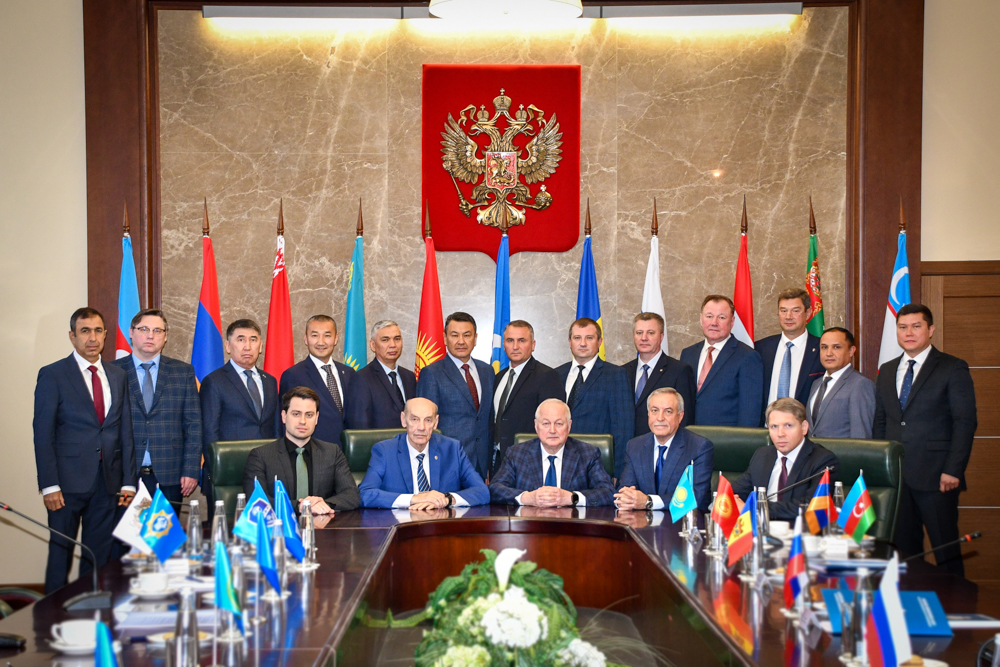March 24, 2021

On 24 March, the CIS Anti-Terrorism Center (CIS ATC) and the Research Institute for CIS Security Problems (SPI-CIS) held a joint extended meeting of the CIS ATC’s Scientific and Advisory Board and Institute’s Academic Board in Moscow.
Due to the COVID-19 pandemic restrictions in effect in the Commonwealth states the event was held in the “blended” format meaning that it was a combination of physical and online participation.
The meeting brought together permanent representatives of the Scientific and Advisory Council from Armenia, Azerbaijan, Belarus, Kazakhstan, Tajikistan, Uzbekistan, Kyrgyz Republic and Russian Federation, CIS Inter-Parliamentary Assembly, members of the SPI-CIS Academic Board, visiting experts from the leading thank tanks and educational institutions of the Commonwealth.
The First Deputy of the CIS ATC Colonel Zhanat Saipoldayev addressed the audience on behalf of the CIS Anti-Terrorism Center’s Head Colonel-General of Police Andrey Novikov. He noted that the meeting agenda considered scientific coverage of the issues related to new technologies of attempted statehood dismantlement and civil unrest, political radicalization of certain social groups leading to terrorism in the contemporary conditions. “Indeed, we need a scientific approach to these issues, scientific rationale of practical solutions”, Zhanat Saipoldayev stressed.
According to Saipoldayev, the experience of the security agencies, special services and law enforcement of the CIS member-states allows proceeding with elaboration of specific technologies to counter political radicalization of individual groups of population and attempts to forcefully dismantle the constitutional order.
The meeting concluded with adoption of a resolution.
The plenary meetings of the Scientific and Advisory Board at the CIS ATC are held in compliance with the Program of cooperation of the CIS member-states in countering terrorism and other violent manifestations of extremism. The topics of the Board’s meeting are selected basing on the states’ requests, terrorist threats, emerging terrorist technologies and methods of destabilization. Efficient combination of technological, legal and management approaches helps to generate a consolidated scientific stance toward each and every problem and provide the competent authorities with algorithms of their solution.




